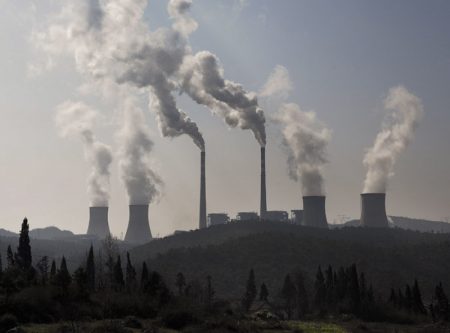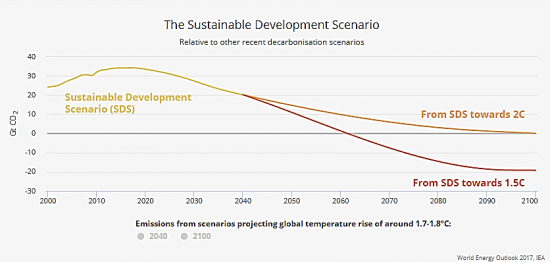March 23, 2018 – Buried on page B7, below the fold, of today’s business section of The Globe and Mail is a short article entitled “Carbon emissions hit new record in 2017.” Written by Nina Chestney, Reuters, it reports the results of the Global Energy & CO2 Status Report from the International Energy Agency.

The statistics that follow have few positives and overall reflect the failings of many governments to address climate change and commitments made at the Paris COP21 Climate Conference.
- Energy-related CO2 emissions grew 1.4% in 2017 with energy demand rising 2.1% and economic growth increasing 3.7%.
- Emissions grew by 460 million tons reaching a new global high of 32.5 gigatons.
- This was the first year in the past four to see emissions increase.
In the Developed World, several nations reported declines. These included the United States, United Kingdom, Mexico, and Japan. Surprisingly, the United States produced the largest decline of 0.5%, equal to 25 Megatons, because of new renewable energy sources coming online. This was the third year in which the United States saw CO2 emissions decline. The United Kingdom reported a 3.8% drop in emissions equal to 15 Megatons. Mexico’s drop was 4%, and Japan’s 0.5%.
The biggest contributor to increased emissions occurred in Asia led by China whose economy grew 7% contributing to emissions increases of 1.7% or 150 Megatons.
Emissions in the European Union were also up by 1.5% or 50 Megatons.
And Canada, where the federal government has committed to a 30% reduction in emissions from 2005 levels by 2030, continues to fall further behind in stopping the rise in its own emissions. Back in November 2017, Angel Gurria, Secretary-General of the Organization for Economic Co-operation and Development, remarked that despite an environmentally activist government in Canada, the country is falling behind the United States, a country that has announced its intention to pull out of the Paris COP21 agreement. Gurria noted that by now Canada should have seen a 17% drop in its annual CO2 emissions rather than the actual drop of a mere 2%.
The overall increase in global CO2 emissions was equal to adding to the world’s roads 170 million fossil-fuel burning vehicles. That’s going in the opposite direction from where we need to be. Gurria talks about an intergenerational responsibility not being met by the majority of countries today, and a growing worldwide problem.
Paris set a lower and upper target in terms of mean temperature rise by the end of the century. The lower one was 1.5 Celsius (2.7 Fahrenheit). The upper was 2.0 Celsius (3.6 Fahrenheit). Based on the latest Intergovernmental Panel on Climate Change (IPCC) paper analyzing emissions data, that 1.5 rise will happen by 2040, sixty years ahead of the target date.
This is a political failure of global proportions and demonstrates the absence of leadership around the world in tackling climate change through implementing emission reduction policies and practices.
At best climate scientists talk about us having a 5% chance of reigning in emissions so that we don’t see temperatures rise by 2.0 Celsius before century end. But as you can see decarbonization to achieve 1.5 or a 2 Celsius rise requires a far more aggressive tack to lower the emission curve.









